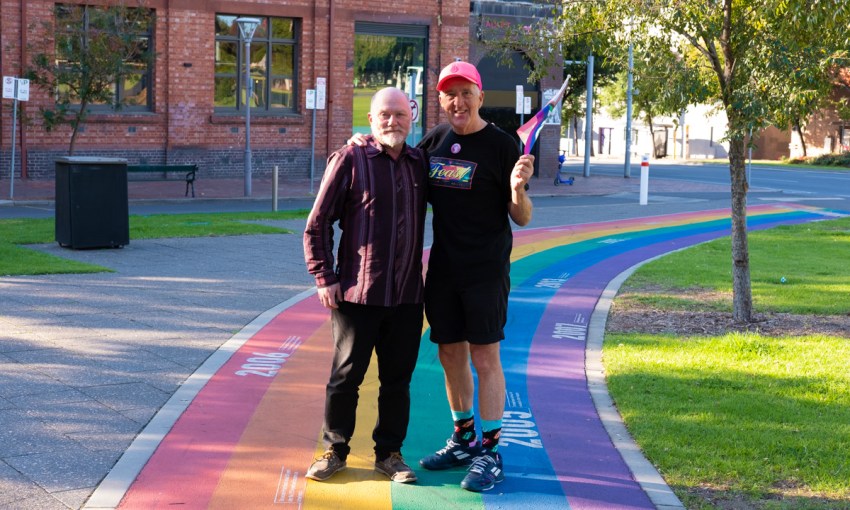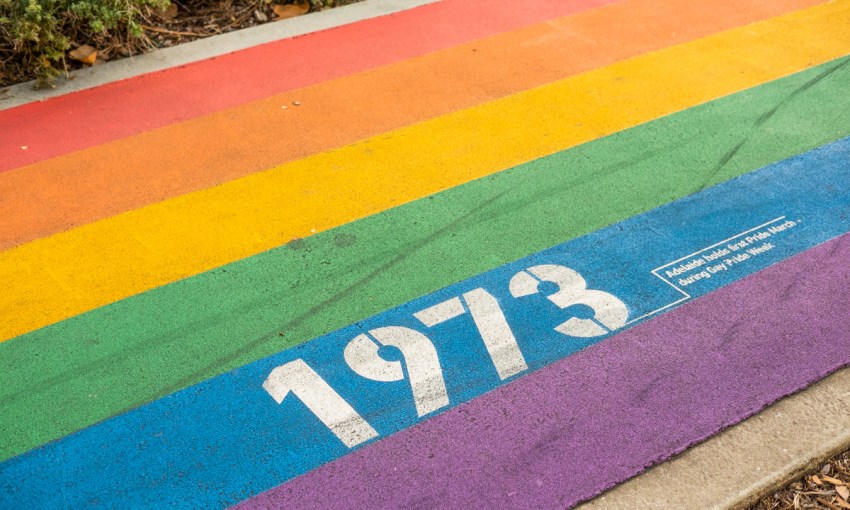Pride Adelaide will host a panel this week discussing the history of queer rights in South Australia to inspire the emerging generation of Adelaide's LGBTQIA+ community.
Fifty more years of fighting for queer rights
As a young gay man in the early 1970s, queer activist Will Sergeant remembers the monumental task that befell his generation.
In 1973, following the death of Dr George Duncan a year earlier, South Australia’s queer community rallied to call for the decriminalisation of homosexuality.
Celebrating 50 Years of Queer Pride in South Australia
Panel discussion
2pm Saturday, 20 May
Diverse-City
116 Grote Street, Adelaide, 5000
FREE—Register
Just as seemingly insurmountable at the time, Will and his contemporaries also asked the South Australian community at large simply for acceptance.
“[In] ‘73… law reform wasn’t our major focus — it was about changing society’s attitude, being out and proud and confronting society,” Will says.
“The focus was removing all discrimination, not just about repealing the law regarding male sex.”
Will is one of a handful of local queer identities who’ll appear at Pride Adelaide’s 50 Years of Queer Pride in South Australia panel discussion, hosted as part of the History Festival.

Will Sergeant at the Proud Parade in 1973. This picture: Jill Matthews Collection, Australian Queer Archives, Melbourne.
Chair of Pride Adelaide, Neil Clegg, says this event commemorating the 50th anniversary of the inaugural South Australian Proud Parade is an opportunity for the panel to share their personal histories with an emerging generation.
“The discussion that we will be having will be people sharing their experiences of history in the queer community of Adelaide, but also their own personal experiences of pride [and] what pride is for them,” Neil says.
“We just thought this would be something different and an opportunity to share stories in a very real way in terms of identifying with the person speaking.
“So, we chose these people… to try and express as best we can the diversity within our communities and the diversity and people’s perception of what pride is for them.”
Alongside Will, the panel will also includes Charlotte Coulthard-Dare, Jenny Scott, and Lorraine Tyler.
With hard-won advances in queer rights – like the right for same-sex couples to marry, made legal through a plebiscite in 2017 – still occurring in the current era, queer history is a live and relevant topic. But Neil admits it’s not always easy to engage young people.
“Intergenerational interaction… is a complex and difficult thing to create,” he says.
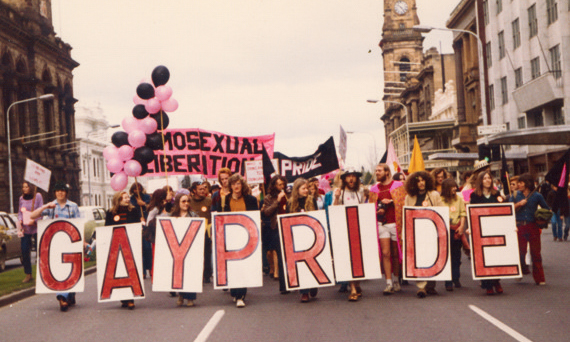
Adelaide’s first Proud Parade in 1973. This picture: Jill Matthews Collection, Australian Queer Archives, Melbourne.
Will was in his early 20s at the time of the first Proud Parade. He remembers the ’70s as a “very exciting time, because in a way we were the first ‘out’ generation”.
“Before that, people weren’t really out and proud,” he says. “They may have been open with friends but it was all fairly discreet, and of course male homosexual sex was still illegal in ’72, ’73.”
He was positively surprised that the Proud Parade in ’73 only copped “two eggs thrown at [them], that was all”.
“People were just taken back I think,” he says.
“You can sort of see some people are just a bit bemused, they’d never seen anything like this before – homosexual liberation.
“And we were singing and chanting and it was very celebratory, it wasn’t sort of [earnestly] political.”
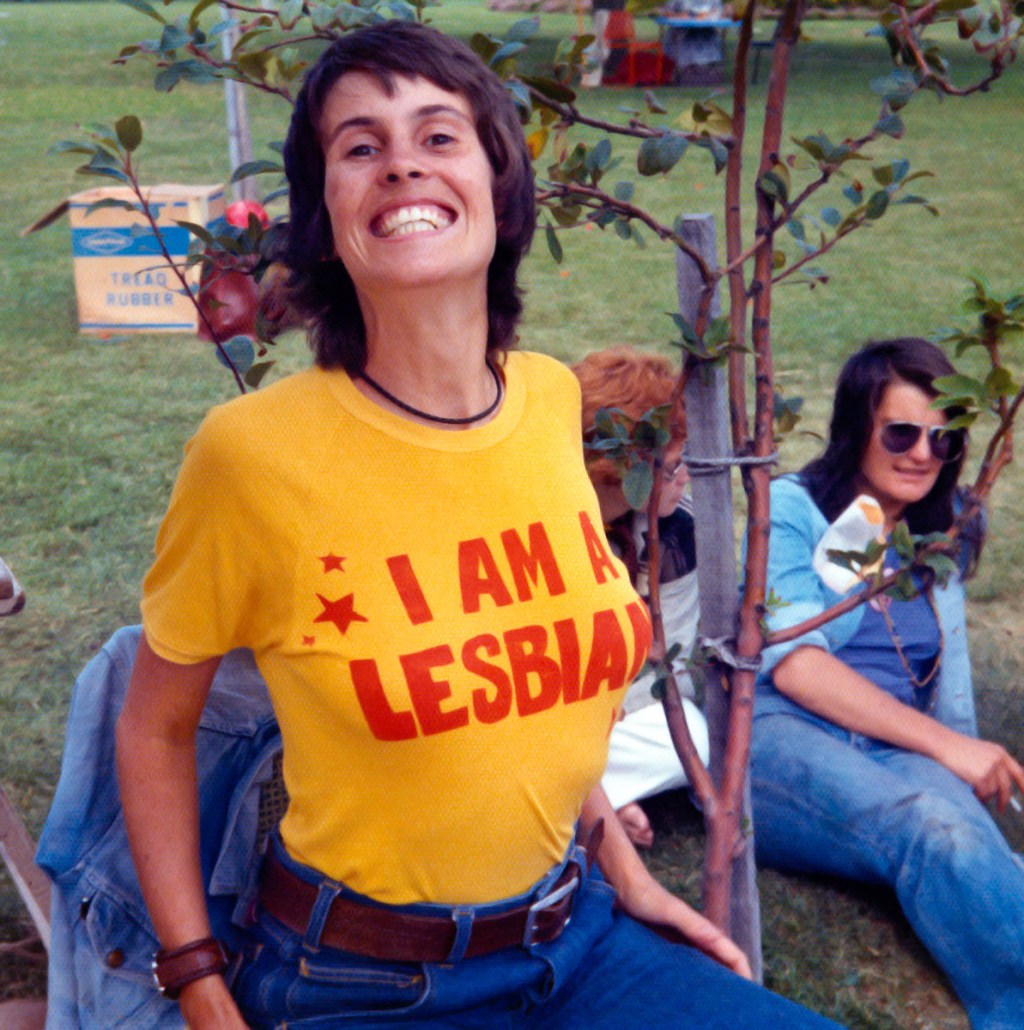
A protester 50 years ago. This picture: Jill Matthews Collection, Australian Queer Archives, Melbourne.
The parade was the beginning of a fundamental change in how the South Australian society viewed gay people, but, for Will, it also came after he’d come to see and accept himself.
Like many gay people in the ’70s, Will says his coming out process was a challenge. He considered aversion therapy — now known as conversion therapy — to physically shock his sexual preference out of himself.
“I didn’t want to be gay; I had finally accepted that I was and… I was exploring the possibility of having aversion therapy to cure myself,” Will says.
“I reflect on that and how in a sense gay liberation saved me from that, and I am forever grateful, so that’s part of my personal journey.”
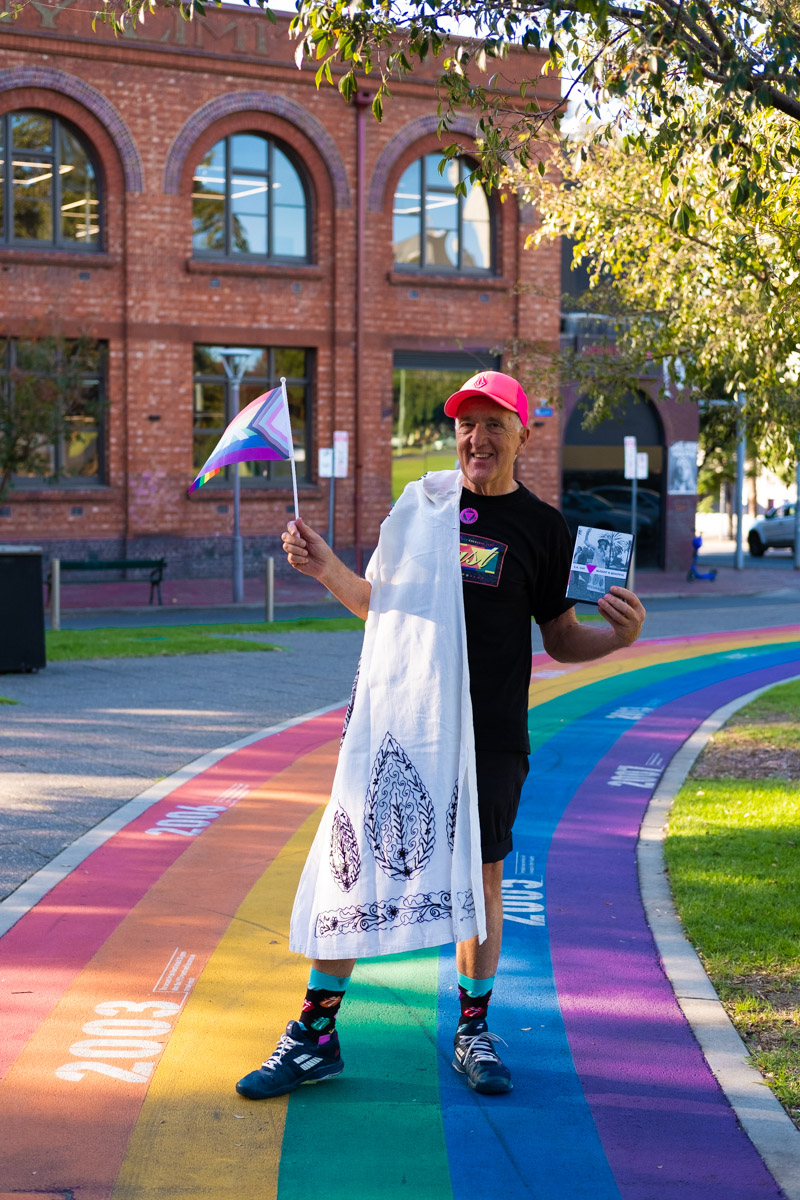
Will and his pride memorabilia, including the caftan he wore in the parade in 1973
Part of that liberation was the reclamation of the language that was used against gay people at the time.
“Back then the word ‘gay’ was fairly new in the Australian lexicon,” Will says. “You know, before that, people might talk about being camp or being queer – and they both could be used pejoratively, particularly queer.”
Not only did Will and his contemporaries reclaim control through language, but his community took power and pride in what they wore, refusing to conform to gender stereotypes – a trope which echoes in contemporary discussions about queer communities.
“I think we had a sense back then that you were able to claim your sexuality and dress the way you wanted to,” Will says.
“That idea of rigid male and female gender roles would be blurred.
“In fact, we used the term ‘gender confusion’ and we didn’t mean that we were confused about our gender, it meant that we played with the way we dressed [and] the way we behaved.”
The 50 Years of Queer Pride in South Australia panel discussion will take place on Saturday, 20 May at 2pm at Diverse-City, 116 Grote Street, Adelaide.
Connect with Pride Adelaide on Instagram for more information about the event, or visit the website to donate.



